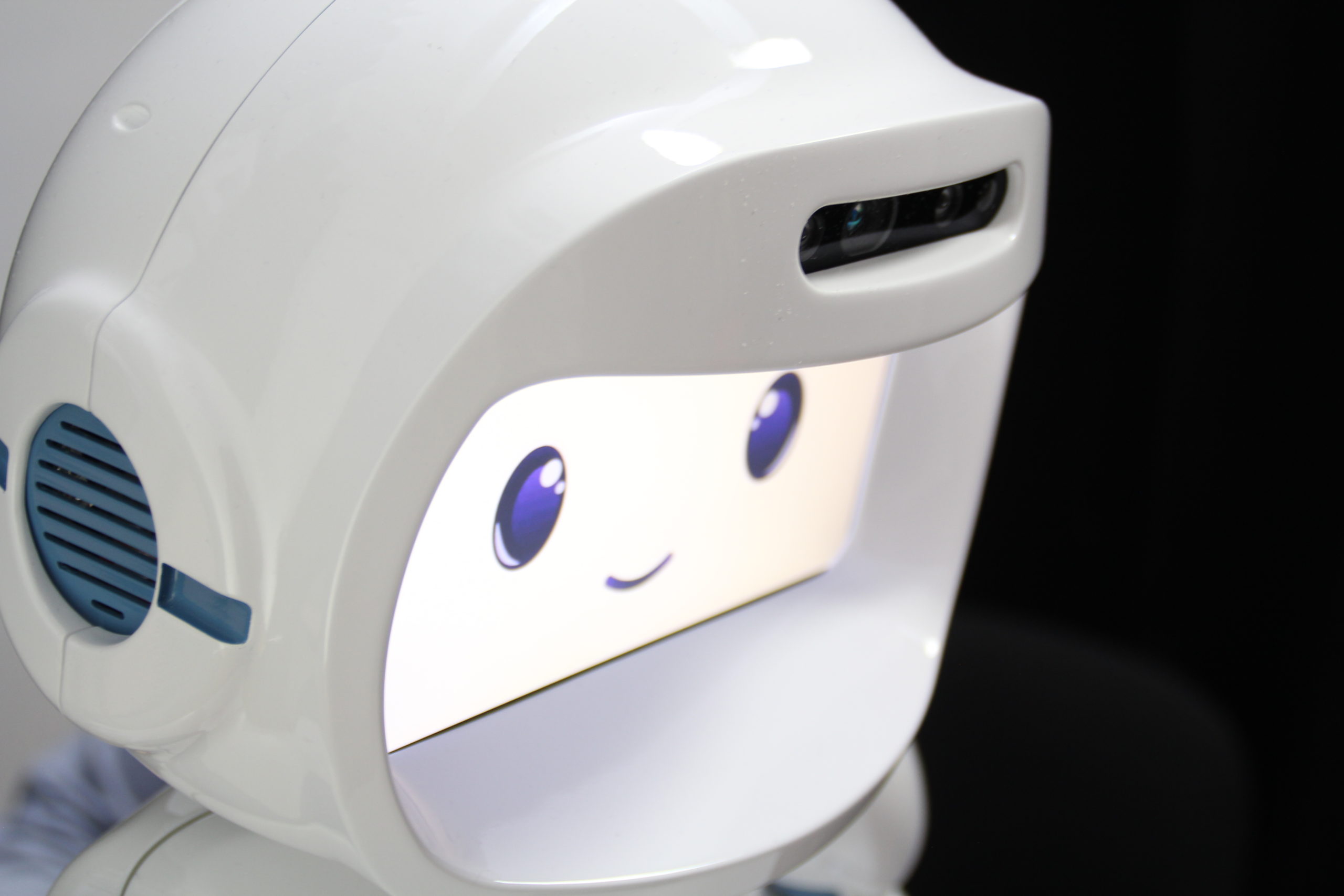
MigrAVE
Multilingual online learning portal and transcultural robotic learning assistant for autism spectrum disorders.
Welcome to the information platform MigrAVE
Parents who use the Internet as a source of information about autism spectrum disorders (ASD) are often confronted with a flood of different and also contradictory statements, which can lead to uncertainty and make it difficult to make a decision regarding diagnosis or selection of a suitable therapy.
With this platform, we would like to provide the easiest possible access to well-founded information according to current scientific findings on the topic of ASD and helpful materials for therapy. In particular, we would like to support relatives, but also therapists, in understanding ASD and in taking the necessary steps to promote the child’s development in the best possible way.
The information platform is divided into an open, freely accessible section and a log-in section. In the open section, we offer comprehensive information on the topics of causes, symptomatology, diagnostics and therapy. In addition, in the section “social legal aspects” we provide practical advice on various support options. Under “more information” we have compiled a selection of contact points, given an overview of further literature, and informative websites and presented further research projects on the topic of ASD.
In the log-in area of this page, we go into more detail about autism-specific behavior therapy and its application and provide corresponding learning materials.
As AVT is a scientific procedurewhose application requires sound training, the materials offered should not be used without professional support. The use of the login area is therefore reserved for the practice partners of the MigrAVE project and the families therapeutically connected to it.
In order to overcome language and cultural barriers, the platform is available in German and English. It also offers short, descriptive information videos in eight different languages.
MigrAVE Project
This platform was created as part of the MigrAVE project (Multilingual Online Learning Portal and Transcultural Robotic Learning Assistant for Autism Spectrum Disorders: Building socio-emotional and life skills of children in migration context). The project was funded by the German Federal Ministry of Education and Research within the framework of the funding program “Forschung an Fachhochschulen” (Duration 01.10.2020-31.12.2023).
Grant number: 13FH090SA8, 13FH090SB8, 13FH090SC8



The aim of the project was to develop technologies to support autistic children in their learning and therapy process and thus relieve the burden on the families concerned.
In addition to this online information platform, a learning assistance robot was developed that can independently initiate learning situations and assess the child’s level of attention. If the child is distracted, the robot is able to react with a child-friendly response. You can find more information about the learning assistance robot on our You Tube channel https://www.youtube.com/@migrave-project.
The merger of FH Münster University of Applied Sciences, Hochschule Bonn-Rhein-Sieg University of Applied Sciences and Rheinische Hochschule Köln – University of Applied Sciences in the MigrAVE project brought together expertise from the fields of autism-specific behavioral therapy (AVT), robotics and computer-aided emotion and state recognition and implemented the concepts technically.
In addition to numerous practice partners, the MigrAVE project cooperated closely with the MIA program (Münster Intensive Therapy for Children with Autism Spectrum Disorder) at Münster University of Applied Sciences.



MIA Program
The Münster Intensive Program for Children with ASD (MIA) is a behavioral early intervention program for preschool and elementary school-age children. The program was launched in 2010 at the University of Applied Sciences Münster. Since fall 2015, it has been a joint project of the Münster Autism Competence Center MAKZ under the sponsorship of the non-profit Association for the Promotion of Scientific Interventions in ASD e.V. (WIA) and the Department of Social Work at the University of Applied Sciences Münster.
The MIA program is based on the approach of autism-specific behavior therapy (AVT). This is a highly individualized, time- and personnel-intensive learning-psychology-based approach that aims at the targeted improvement of individual areas of disturbance as well as progress in developmental status and independence. Within the framework of the program, parents and, if possible, also the respective specialists from the school or daycare center are intensively trained. Following the approximately three-month training and education phase, the children are individually supported for six months at home and in their familiar environment.
During the program, the families are intensively accompanied by student therapists as well as qualified video and on-site supervision. Further information about the MIA program can be found at https://www.wia-muenster.de/ and https://www.fh-muenster.de/sw/forschung/projektseiten/autismusprojekte/Modellprojekt_MIA.php
Further cooperation partners from science and practice:
Please click on the logos to follow the links









Acknowledgements
We would like to express our sincere thanks to all those who have contributed to the development of this platform through their support:
- The staff of the MIA program at the University of Applied Science Münster s, for their professional support and for providing seminar texts and therapy progress and control sheets for download in the log-in area.
- The people responsible for the “Simple Steps” program, for providing brochure texts and learning materials.
Simple Steps is a multilingual and multimedia AVT training program for parents and therapists. The program was originally developed by PEAT (Parents’ Education as Autism Therapists) with the support of the BBC and the Big Lottery Fund. Through the support of the EU’s Leonardi da Vinci funding program, the program was also offered in Norway, Spain, throughout the United Kingdom, and Germany. The project was supported by the University of Oviedo, Spain; Akershus University of Applied Sciences, Norway; Queen’s and Ulster Universities in Northern Ireland; ANTAM, London; the European Association for Behaviour Analysis; and in Germany, the Department of Social Work at the University of Applied Sciences Münster.
- To the families for providing therapy videos of their children for the log-in area.
- Our cooperation partners from science and practice